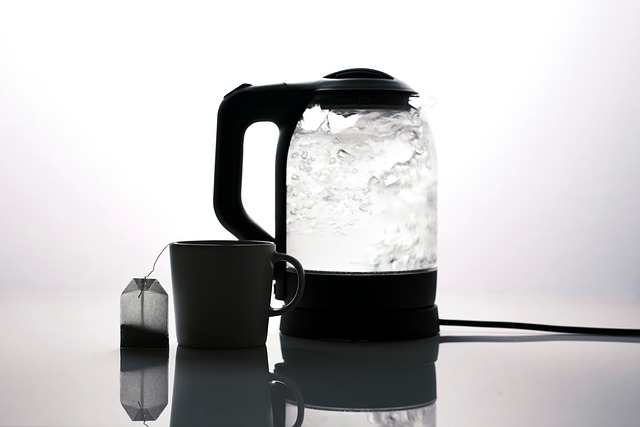Water heater problems range from minor (lack of hot water, unusual noises, leaks) to critical (unit shutdowns). Regular maintenance includes checking for these issues, clearing sediment buildup, and ensuring optimal efficiency. Prevent cold showers by checking appliance usage and troubleshooting heating element or thermostat problems. Unconsistent water temperature may indicate sediment buildup, faulty thermostats, or aging heating elements, requiring professional repair or replacement for consistent hot water supply.
Are you tired of cold showers or dealing with a noisy water heater? Troubleshooting these issues is essential for any homeowner. This guide will help you navigate common water heater problems, teaching you to identify symptoms like no hot water, inconsistent temperatures, and leaks. We’ll also walk you through the decision-making process of when to repair or replace your unit, considering factors like age, cost, and severity. Plus, learn valuable maintenance tips to extend your water heater’s lifespan and ensure optimal performance.
Identifying Common Water Heater Issues

Water heater problems can range from minor inconveniences to major issues that require immediate attention. Identifying common water heater issues is the first step in effective water heater maintenance. One of the most frequent problems is a lack of hot water, which could be due to an exhausted tank or a faulty heating element. Other indicators include unusual noises coming from the heater, such as banging or rumbling sounds, suggesting potential issues with the temperature control or pressure relief valve.
Leaking water is another red flag, often caused by corroded or damaged connections at the base of the unit. Over time, sediment buildup can also lead to reduced heating efficiency and even cause the heater to shut down altogether. Regular water heater maintenance includes checking for these issues and clearing out any debris or mineral deposits that may have accumulated.
– No hot water

If you’re facing a cold shower dilemma, the first step is to check if the issue is merely a result of depleted hot water rather than a faulty water heater. Try turning off all appliances that use hot water and wait for a while to see if the tank recharges. If after some time, you still have no hot water, it could indicate a problem with the heating element or the thermostat.
Regular water heater maintenance can prevent such issues. This includes flushing the tank periodically to remove sediment buildup, ensuring proper venting to avoid pressure build-up, and inspecting the anode rod for corrosion. By keeping on top of these tasks, you can extend the lifespan of your water heater and avoid unexpected breaks, especially when it comes to hot water availability.
– Inconsistent water temperature

If your water heater is struggling to maintain a consistent temperature, it could be time for some water heater maintenance. This issue often arises due to sediment buildup at the bottom of the tank, which can prevent heat from circulating efficiently. Over time, this sediment can insulate the water, leading to uneven heating and hot water that fluctuates in temperature. Regular flushing of your water heater can help alleviate this problem and ensure consistent performance.
Inconsistent water temperature could also be caused by faulty thermostats or elements. Thermostats control the set point of your water heater, and if they’re not functioning properly, it may result in unpredictable heating. Similarly, elements responsible for heating the water might need replacing after several years of use. When these components fail, they can’t maintain a steady temperature, leading to either scalding or cold water. In such cases, consulting a professional for water heater repair or replacement is recommended to restore consistent hot water supply.
When it comes to your home’s water heater, knowing when to repair and when to replace is essential for efficient water heater maintenance. By understanding common issues like no hot water or inconsistent temperature, you can proactively address problems. Regular check-ups and prompt action, whether through simple fixes or a complete replacement, will ensure a reliable heating system, saving you from unexpected disruptions. Prioritizing water heater maintenance is a smart step towards a more comfortable and stress-free home life.
